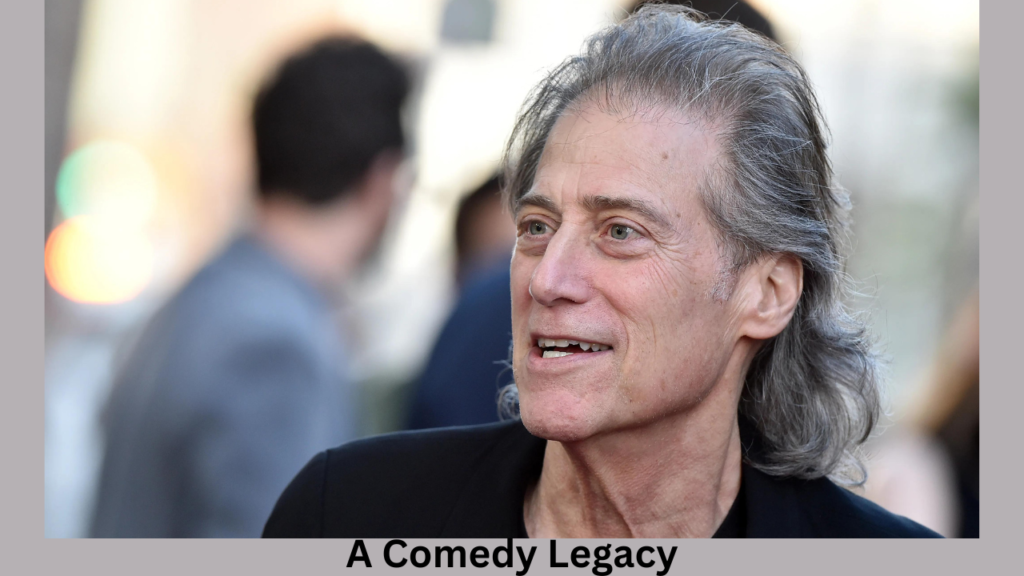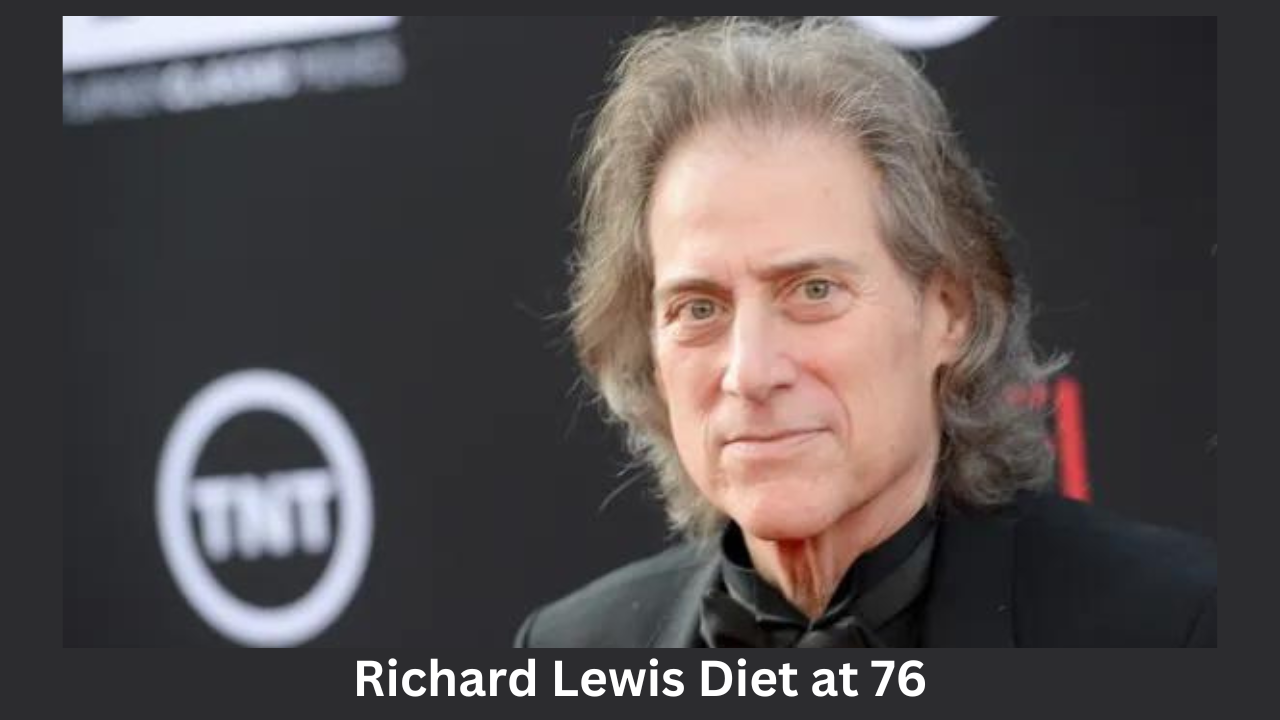The comedian Richard Lewis, who gained notoriety for dressing in black while juggling his neurotic tendencies, was dubbed “The Prince of Pain.” He died at the age of seventy-six.
Parkinson’s diagnosis and the last hours of life:
In 2023, Lewis disclosed that he had Parkinson’s disease. His publicist Jeff Abraham claims that on a Tuesday night following a heart attack, he moved into his Los Angeles house.
A Comedy Legacy Richard Lewis:

Lewis starred in television shows and nightclubs for many years, portraying dependable parts like Marty Gold in ABC’s “Anything But Love” alongside Jamie Lee Curtis and the consistently narcissistic Prince John in “Robin Hood: Men in Tights.” In “Curb Your Enthusiasm,” an HBO series, he reintroduced himself to a new generation by competing against Larry David as Lenny DeStefano.
I have no idea about anything in my life, not even at home. He famously joked on stage, “I have a rearview mirror on my stationary motorbike, and I’m not happy about what I see in it.” He laughed as he related his difficulties, which ranged from trying to go to sleep in the morning to counting sheep.
Comedy Icon and Humanitarian:
Comedy Central listed Lewis as one of the top 50 stand-up comedians, and GQ included him as one of the “Most Influential Comedians of the 21st Century.” His comedic contributions benefited humanitarian organizations such as Comedy Gives Back and Comic Relief.
Seeing him perform stand-up was described as “a highly entertaining and often cathartic therapy session” by the Los Angeles Times. The Philadelphia City Paper referred to him as the “Monologist of our generation,” and Mel Brooks hypothesized that he might be “the Franz Kafka of modern comedy.”
Early Career and Influences:
Lewis, who was born in 1947 in New York, started his stand-up career in 1969 after earning his degree from Ohio State University. Alongside peers like Billy Crystal, Freddie Prinze, and Jay Leno, he became well-known.
Lewis, likened to comedian Lenny Bruce, brought viewers into his realm of sorrow and sadness, in contrast to modern Robin Williams.
Life Beyond Stage:

Lewis said in a 2007 opinion piece for The Palm Beach Post, “I suffer too much for not being numb.” He stressed against choosing a disability despite his own struggles since it could overshadow others’ hopes. Until someone said something cruel, he thought his comedy may be funny to others but not to himself.
In a song about an old acquaintance who purchased a “West Coast ticket” and is now performing stand-up routines in Los Angeles, singer Billy Joel made reference to Lewis.
Distinctive Stage Presence:
Standing ovations were given to Lewis during his 2.5-hour performance in 1989 at Carnegie Hall, where he stood out in his characteristic, substance-filled legal robes. His trademark black outfit and comedic approach came from early influences like the TV series “Have Gun – Will Travel” and a black-clad cowboy toy.
“One day it suddenly came to me, and for whatever reason I kept saying it. Black clothing serves the same purpose. Since the early ’80s, I’ve been really at ease in them, and I haven’t looked back,” he said.
Personal Struggles and Triumphs:
In his 2008 memoir, “The Other Great Depression,” Lewis detailed his experiences after beating alcoholism and drug addiction in 1994. The book offers an essayistic, daring reversal of his life and a survival guide for “Surviving Hell.”
Lewis, the youngest of three siblings, experienced early-life tragedy when his father passed away at a young age and his mother struggled with emotional problems. He disclosed in 2020 that he felt compelled to pay his agent’s commission because he felt accountable for his mother’s care.
Legacy and Lasting Impact:
Richard Lewis made a name for himself in the comedy world with his different approach and raw humor. His influence went beyond humor; he was vulnerable and offered comfort in common hardships. Even though we are saying goodbye, his dedication to humor will always be remembered.





